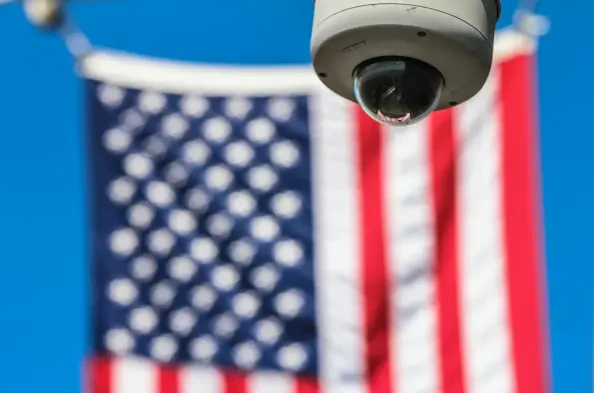In a stunning and divisive policy shift, President Donald Trump has orchestrated a deal with tech powerhouses Nvidia and AMD, permitting the export of advanced AI chips to China in return for a 15% revenue share to the U.S. government. This arrangement, which breaks from decades of stringent export controls designed to protect American interests, has ignited a firestorm of debate among lawmakers, security experts, and industry leaders. The decision to prioritize financial gain over safeguarding sensitive technologies raises profound questions about the future of national security and the integrity of U.S. policy in an era of intense global competition. By allowing access to cutting-edge AI capabilities in a market considered a strategic rival, this deal challenges the very foundation of export restrictions meant to prevent potential adversaries from gaining military or technological advantages. As concerns mount, the implications of this unprecedented move resonate far beyond the tech sector, touching on legal, economic, and geopolitical dimensions.
A Dramatic Shift in Export Control Norms
The landscape of U.S. export policy has long been defined by an unwavering commitment to national security, particularly when it comes to sensitive technologies like AI chips. Historically, decisions to restrict exports to countries such as China were rooted in the need to prevent adversaries from accessing tools that could bolster military or surveillance capabilities. Trump’s recent deal with Nvidia and AMD marks a radical departure from this principle, introducing a transactional model where financial contributions to the government appear to unlock access to previously banned markets. Critics have labeled this a “pay-for-play” approach, arguing that it erodes the non-negotiable stance that once underpinned export controls. Such a shift not only redefines how strategic technologies are managed but also risks setting a dangerous precedent for other industries critical to American dominance. The concern is palpable: if security can be traded for revenue, what prevents other vital sectors from facing similar compromises?
This policy change also casts doubt on the consistency of U.S. commitments to allies who rely on American leadership in technology and security. By allowing Nvidia and AMD to sell advanced chips like the ##0 and modified Blackwell models to China, the government signals a willingness to bend rules that were once ironclad. Lawmakers and analysts worry that this could embolden other nations or corporations to seek similar exceptions, undermining the entire framework of export restrictions. The financial incentive of a 15% revenue cut to the U.S. government, while potentially lucrative in the short term, pales in comparison to the long-term risks of diluting policies designed to protect national interests. Beyond the immediate deal, the broader implication is a potential unraveling of trust in American resolve to prioritize security over profit. As this new approach takes hold, the ripple effects may reshape international perceptions of U.S. policy, raising questions about reliability in a world of escalating technological rivalry.
National Security Risks Under Scrutiny
The decision to permit the export of advanced AI chips to China has sparked intense alarm among lawmakers across party lines, who see it as a direct threat to American safety and global standing. Figures like Republican Representative John Moolenaar and Democratic Representative Raja Krishnamoorthi, both prominent members of the House Select Committee on China, have publicly criticized the deal for its potential to enhance China’s technological prowess. Their concern centers on how access to chips like Nvidia’s ##0 could accelerate advancements in AI-driven military applications or surveillance systems, capabilities that could be used against U.S. interests. This bipartisan outcry underscores a rare unity in Washington: the belief that national security should never carry a price tag. The fear is not just about immediate threats but also about the long-term erosion of technological superiority, a cornerstone of American defense strategy in an increasingly competitive global arena.
Beyond the halls of Congress, security experts echo these warnings, emphasizing the message this deal sends to both adversaries and allies. By allowing financial considerations to influence security decisions, the U.S. risks appearing as though its principles are negotiable for the right fee. This perception could weaken alliances with nations that depend on American steadfastness in countering China’s technological ambitions. Furthermore, it may embolden other countries to push for similar concessions, creating a domino effect that dilutes the effectiveness of export controls worldwide. The stakes are high, as AI technology plays a pivotal role in modern warfare, cybersecurity, and economic dominance. If China gains ground in these areas through access to U.S. innovations, the balance of power could shift in ways that are difficult to reverse. As debates rage, the consensus among many observers is that this deal sacrifices critical safeguards for short-term financial gain, a trade-off with potentially devastating consequences.
Legal and Corporate Dilemmas
On the legal front, Trump’s deal with Nvidia and AMD has raised significant questions about its compliance with constitutional principles governing trade and taxation. The U.S. Constitution explicitly prohibits Congress from imposing taxes or duties on exports, leading experts to scrutinize whether the mandated 15% revenue share constitutes an unconstitutional levy. Trade lawyers and academics have pointed out the ambiguity surrounding the nature of this payment—is it a tax, a fee, or something else entirely? This lack of clarity fuels uncertainty, with some describing the arrangement as the government taking a cut “off the top” in a manner that lacks precedent or transparency. Such legal gray areas could invite challenges in court, potentially derailing the deal or setting a contentious benchmark for future government interventions in private industry. The implications extend beyond this specific case, as unresolved legal questions could undermine confidence in the rule of law as it applies to international commerce.
For Nvidia and AMD, the corporate ramifications are equally complex, balancing opportunity against financial strain. Analysts predict that the revenue-sharing model could shave off significant profit margins—potentially 5 to 15 percentage points—on chips sold to China, impacting overall profitability for both companies. Yet, access to China’s vast and growing market offers a lifeline for maintaining competitive relevance in a critical region. Portfolio managers and industry observers note that while this deal presents a burden through reduced earnings, it also prevents the complete loss of a lucrative customer base. This duality highlights the tightrope tech giants must walk under the new policy, weighing immediate costs against long-term strategic positioning. As these companies navigate the fallout, the broader tech sector watches closely, aware that similar arrangements could soon affect other players. The intersection of legal uncertainty and corporate pressure underscores the multifaceted challenges posed by this unconventional policy shift.
Patterns of Government Overreach in Industry
Trump’s involvement in the Nvidia and AMD deal fits into a larger pattern of direct government intervention in corporate decision-making, a trend that has characterized much of his approach to governance. From pressuring executives to prioritize American manufacturing to influencing leadership changes at major firms over foreign ties, this administration has consistently blurred the lines between public policy and private enterprise. Experts suggest that the current arrangement, which trades security considerations for financial returns, is unlikely to be an isolated incident. Instead, it may herald a new era where strategic industries face increasing government scrutiny and transactional demands. This shift raises concerns about the autonomy of corporations in critical sectors like technology, where innovation and global competitiveness often depend on independence from political interference. The precedent set by this deal could reshape how businesses operate under the specter of government leverage.
The broader implications of such interventions are troubling for both industry leaders and policymakers. If government policies on sensitive technologies become negotiable, other sectors—such as defense, energy, or telecommunications—might face similar pressures to align with political or financial objectives over strategic imperatives. This deal with Nvidia and AMD serves as a test case, revealing the potential for a slippery slope where national interests are repeatedly weighed against short-term gains. Analysts warn that normalizing this approach could erode the trust between public and private sectors, hampering collaboration on issues vital to national security and economic stability. As this pattern unfolds, the long-term impact on America’s global standing remains uncertain, with many fearing that transactional governance could weaken the nation’s position as a leader in technology and innovation. The debate over this deal is thus not just about AI chips but about the future direction of U.S. policy in an interconnected world.
Reflecting on a Risky Precedent
Looking back, the deal brokered by President Trump with Nvidia and AMD stood as a pivotal moment that challenged the bedrock of U.S. export control policies. It sparked heated discussions across political and corporate spheres, revealing deep-seated concerns about the balance between economic incentives and the protection of national interests. The bipartisan criticism from lawmakers, coupled with legal ambiguities and corporate burdens, painted a picture of a policy decision that carried far more risks than rewards. What lingered most was the fear that allowing advanced AI chips to reach China had potentially fortified a rival’s technological arsenal, at a time when global power dynamics were already in flux. Moving forward, the need for robust oversight and clearer guidelines became evident. Strengthening export control frameworks to prevent security from being commodified, alongside fostering dialogue between government and industry, emerged as critical steps to avoid repeating such a gamble. The lessons from this episode underscored the importance of prioritizing long-term security over fleeting financial gains.






